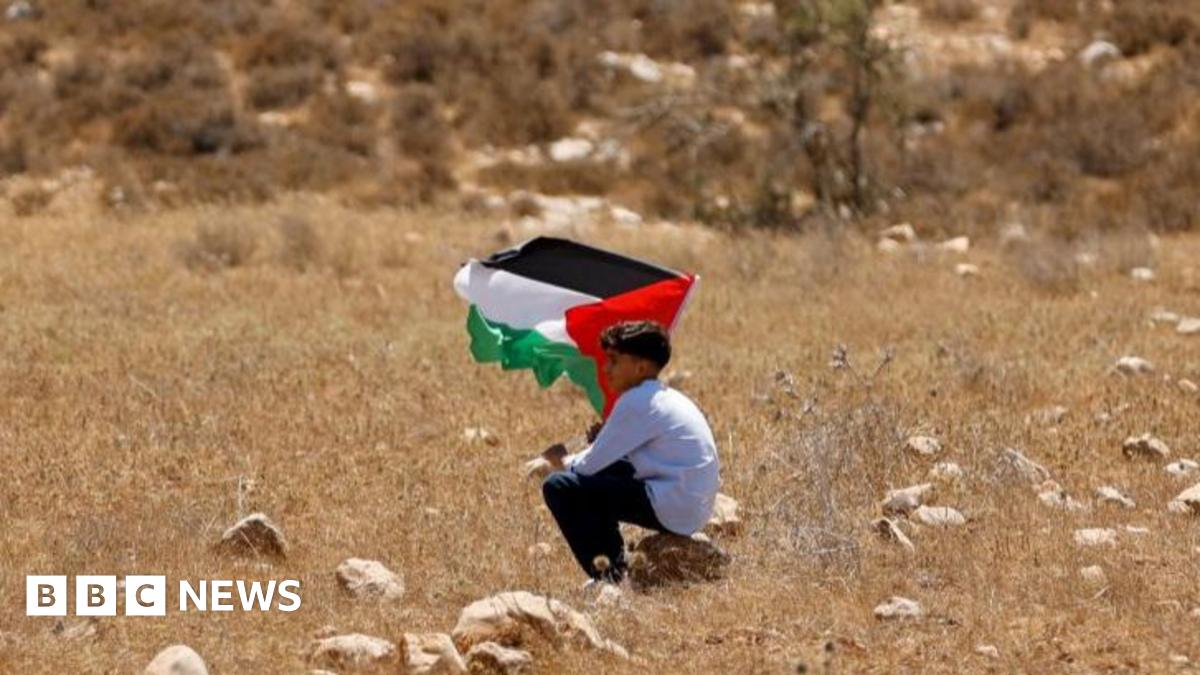The UK, France and other countries are now set to recognise a Palestinian state, as Israeli control spreads across the West Bank and the Gaza War grinds on.
Jenin’s mayor, Mohammed Jarrar, took me to the camp entrance near where Islam was shot. The army vehicles stationed here on my previous visits are nowhere to be seen, but a large earth berm now blocks the road in, and locals say Israeli snipers still scan the area from the buildings overhead.
Mr Jarrar told me around 40% of Jenin was now a military area for Israeli forces, with around a quarter of residents – including the entire camp – displaced from their homes.
“It was clear from the beginning this was a major political plan, not a security operation,” he told me. “This Israeli government wants to annex the West Bank and in preparation for that, it wants to prevent any [armed] opposition to its plan.”
Israel has also placed the Palestinian Authority under a long-term economic siege, withholding tax revenues the PA needs to pay teachers and police.
Israel accuses it of funding terrorism by compensating the families of Palestinian militants who are killed. The PA says it has now scrapped that payment scheme.
Mr Jarrar said it was now very challenging to provide even basic services to the local population, and to persuade young people not to leave.
Against this backdrop, he said, the recognition of a Palestinian state by Britain, France and others is important, even after more than 140 other nations have already done so.
“It confirms the fact that the Palestinian people possess a state, even if it is under occupation,” he told me. “I know that this recognition will lead to [greater] occupation of the West Bank. But even so I believe recognition is more important, because it will shape the future of the Palestinian people, and the international community will be called on to defend their rights.”
